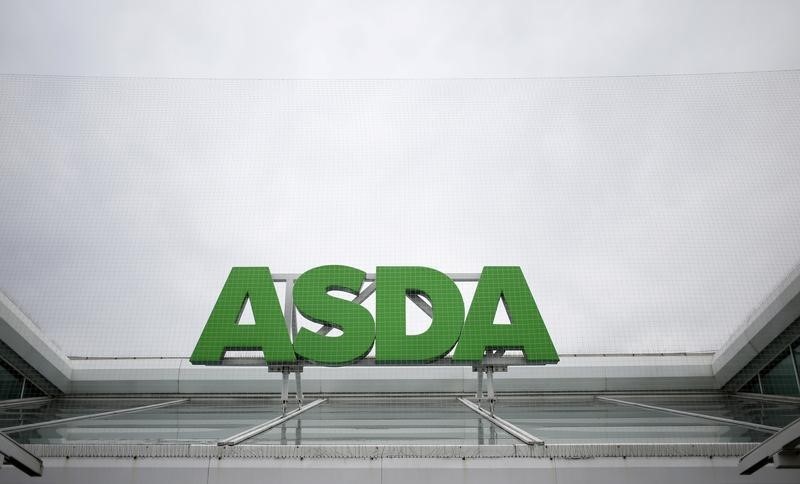LONDON (Reuters) - Supermarket Asda, the British arm of Wal-Mart (N:WMT), is to accelerate investment in its larger stores and put expansion on hold elsewhere to save money as it seeks to reverse a sharp fall in recent sales.
Britain's "big four" supermarkets, Tesco (L:TSCO), Asda, Sainsbury's (L:SBRY) and Morrisons (L:MRW), have been hurt by a price war as they attempt to stem the loss of shoppers to discounters Aldi and Lidl, and the impact of commodity-led deflation.
Without providing new investment figures Asda said on Monday it would speed up existing plans to reconfigure 95 of its larger stores.
But it will also slow down planned expansions in London, such as small format stores, as well as a programme to develop small outlets at petrol stations.
Asda will put a brake on existing plans to develop remote click and collect sites, while non-core areas such as its business to business sales operation will permanently close in the next few months.
"We need to simplify what we do by prioritising the first line of our strategy -- improving our core business - and pausing activity in other areas so that we are not spread too thinly," said Chief Executive Andy Clarke.
All the big four supermarket groups have been lowering prices. But Asda was the first, saying in November 2013 it would spend 1 billion pounds on cuts over five years. In February, Asda separately said it would invest an additional 600 million pounds on stores this year.
Asda's sales performance has deteriorated significantly in 2015, with the firm reporting like-for-like sales declines of 3.9 percent in its first quarter and 4.7 percent in its second quarter.
The second quarter outcome, Asda's worst performance in the 16 years it has been owned by Wal-Mart, was described by Clarke as the firm's "nadir". However, recent industry data has shown little improvement.
Last week Asda lured Roger Burnley, a top executive from rival Sainsbury's (L:SBRY), to be its new chief operating officer, Clarke's deputy and his most likely successor as CEO.

Separately last week Wal-Mart warned on profit, blaming higher spend on wages and e-commerce and lower prices, sending its shares down 10 percent.